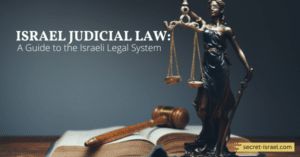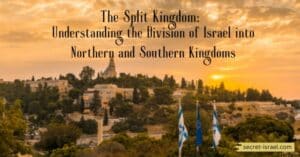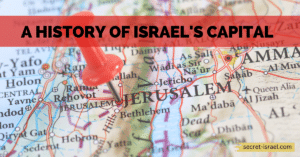The Six-Day War was a pivotal moment in the history of the Middle East, with far-reaching consequences that would shape the region for decades to come. The conflict was sparked by escalating tensions between Israel and its Arab neighbors, particularly Egypt and Syria. On June 5, 1967, Israel launched a preemptive strike against Egypt in response to the closure of the Straits of Tiran.
And other provocations, quickly overwhelming the Egyptian, Syrian, and Jordanian forces. The war ended on June 10 with a decisive Israeli victory and the capture of significant amounts of territory previously held by its Arab neighbors.
In this blog, we will look at what led up to this war, its pivotal battles, and the lasting legacy it has had on the region. We’ll explore how this brief but decisive conflict reshaped the Middle East’s political landscape and left its mark on Israeli identity. Join us as we delve into this fascinating period of history and discover why the Six-Day War remains one of Israel’s defining moments.
Background and Causes of the Six-Day War
The Six-Day War was a pivotal moment in the history of the Middle East, with far-reaching consequences that would shape the region for decades to come. The conflict was sparked by escalating tensions between Israel and its Arab neighbors, particularly Egypt and Syria.
One major underlying cause of the conflict was the ongoing dispute over the status of the West Bank and Gaza Strip, territories that had been occupied by Israel since the 1967 Arab-Israeli War. Arab leaders sought to regain control of these areas, which they saw as rightfully belonging to Palestinian Arabs.

Another important factor was Egypt’s decision to close the Straits of Tiran to Israeli shipping, a move that Israel saw as a direct threat to its economic and strategic interests. Israel responded with a preemptive strike against Egypt’s air force and military installations, quickly followed by strikes against Syria and Jordan.
Ultimately, the Six-Day War represented a major turning point in the history of the Middle East, with significant implications for regional stability, international relations, and the ongoing Israeli-Palestinian conflict.
The Outbreak of War
The Six-Day War began on June 5, 1967, when Israel launched a preemptive strike against Egypt in response to the closure of the Straits of Tiran and other provocations. The opening salvo of the conflict was a surprise Israeli airstrike that heavily damaged the Egyptian Air Force on the ground, giving Israel air superiority from the outset.
Israel then launched ground invasions of the Sinai Peninsula, the Golan Heights, and the West Bank, quickly overwhelming the Egyptian, Syrian, and Jordanian forces. The battle for Jerusalem was a particular highlight of the conflict, with Israeli forces taking control of the city’s Old City and the Temple Mount, a highly symbolic victory for the Jewish state.

The war ended on June 10, 1967, with a decisive Israeli victory and the capture of significant amounts of territory previously held by its Arab neighbors, including the Sinai Peninsula, the Golan Heights, the West Bank, and East Jerusalem.
The conflict marked a significant turning point for the region, with Israel emerging as a dominant military power in the Middle East and Arab nationalist movements suffering a major setback.
The Pivotal Battle for Jerusalem
The Battle for Jerusalem was a pivotal moment in the Six-Day War and a defining moment in Israeli national identity. The Old City of Jerusalem, which had been under Jordanian control since 1948, was the site of some of the most intense fighting of the conflict.
On June 7, 1967, Israeli paratroopers entered the Old City through the Lion’s Gate and battled their way to the Western Wall, the holiest site in Judaism. The capture of the Western Wall was celebrated as a major triumph for Israel and a moment of intense emotional significance for Jews worldwide.

Israel also gained control of the Temple Mount, the holiest site in Judaism, and the Dome of the Rock, a Muslim holy site. The Israeli government soon declared that all three major monotheistic religions would have access to the holy sites, and authority over the Temple Mount was transferred to the Muslim Waqf.
The capture of Jerusalem helped to cement Israeli national identity and established the city as the capital of the Jewish state. It also had significant implications for the Israeli-Palestinian conflict and the ongoing debate over the status of Jerusalem.
The Aftermath of the War
The Six-Day War had far-reaching consequences for the Middle East and the world at large. The most immediate impact was the extension of Israeli control over a significant amount of territory, including the Sinai Peninsula, the Golan Heights, the West Bank, and East Jerusalem. Israel’s rapid and decisive victory had ended the perceived threat from its Arab neighbors, but it also created new challenges and tensions.
The war resulted in a sharp shift in the regional balance of power, with Israel emerging as the dominant military force in the Middle East. The conflict also set the stage for a period of renewed Palestinian nationalism and resistance, as many Arabs saw the Israeli occupation of the West Bank and Gaza Strip as a major injustice.

The aftermath of the Six-Day War also had important implications for international relations. The conflict marked a low point in relations between the Soviet Union and the United States, with the Soviet Union turning to the Arab states for support and the U.S. firmly backing Israel. It also led to a dramatic increase in oil prices, which had lasting effects on the global economy.
The war had a profound impact on the ongoing Israeli-Palestinian conflict, which remains unresolved to this day. The prolonged Israeli occupation of the West Bank and Gaza Strip, along with the expansion of Jewish settlements in these territories, has been a central source of tension and violence. The conflict over the status of Jerusalem also continues to be a major point of contention between Israelis and Palestinians.
Legacy of the Six-Day War
The Six-Day War had a profound impact on the Middle East and beyond, with its legacy still being felt today. The war reshaped the regional balance of power, reinforced Israeli dominance, and had a major impact on the Israeli-Palestinian conflict, as well as on inter-Arab relations.
For Israel, the Six-Day War was a defining moment in national history, a fulfillment of the Zionist dream of a strong, Jewish state in the ancestral homeland. The war also entrenched the belief that Israel must maintain a strong military presence in the West Bank and Gaza Strip and deepened the sense of insecurity that has characterized Israeli society ever since.

For the Palestinians, the war marked the beginning of a new phase of their national struggle, a period of resistance against Israeli occupation and settlement building. The war fueled Palestinian nationalism and helped lead to the rise of the Palestine Liberation Organization, a group that would become a major player in the Palestinian liberation movement.
The aftermath of the Six-Day War also had significant international implications. The conflict set the stage for future wars and crises in the Middle East, including the Yom Kippur War, the Lebanon War, and multiple intifadas. It also played a role in the Arab oil embargo of 1973 and helped create the conditions for the rise of Islamist movements throughout the region.
In conclusion
The Six-Day War was a pivotal event in modern Middle Eastern history with far-reaching ramifications that continue to be felt today. The conflict marked a major turning point for Israel and its Arab neighbors, resulting in a dramatic shift in the regional balance of power and setting the stage for future wars and crises.
The war also had major implications for the ongoing Israeli-Palestinian conflict, with Palestinians facing an extended period of occupation and settlement building by Israel in the contested territories.
The legacy of the Six-Day War remains a source of debate and contention to this day. Ultimately, it serves as a reminder of the complexity and intractability of the Middle East conflict and its enduring effects.












